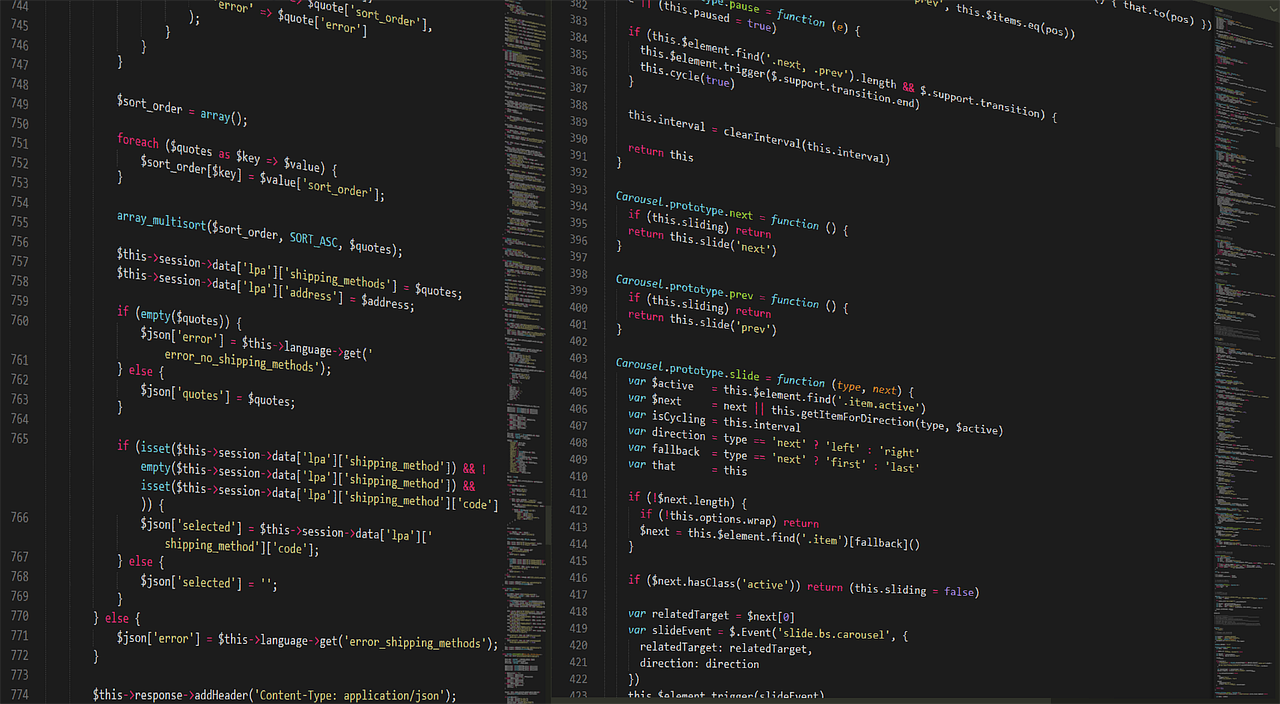Unlock Success with Regular Website Maintenance: A Guide
Don’t Neglect Your Site
In the bustling heart of the digital realm, where the virtual streets teem with countless businesses and individuals seeking their place in the spotlight, there is a hidden hero, often overlooked but crucial to the survival of this digital jungle. This champion goes by the name of “Website Maintenance“.
Picture a vast metropolis of websites, each one a digital storefront bombarding visitors with promises of information, products, and services. These websites are the lifeblood of the modern world, connecting people, bridging gaps, and fueling the engines of commerce and communication. But behind every captivating homepage, there lies a story of evolution, vigilance, and the tireless work of webmasters and developers determined to keep their digital domains alive and thriving.
In this age of rapidly advancing technology, where the virtual landscape constantly shifts and develops, the importance of website maintenance becomes more apparent than ever before. Like the caretakers of an ancient library or the guardians of a futuristic city, these diligent stewards labor in the shadows, ensuring that websites remain secure, functional, and visually appealing.
But what exactly is website maintenance? It’s not just a routine task; it’s a continuous process, a journey of adaptation, and a quest for perfection in the digital realm. It involves updating content, fixing links, enhancing security, optimizing performance, and, above all, ensuring that the website remains an inviting and user-friendly portal for visitors.
Maintaining a website can be an intimidating prospect, especially for those unfamiliar with the internet. However, it is essential for any successful business or individual looking to increase their visibility online. Website maintenance involves staying current with the latest software and security patches, updating content frequently, and verifying that all links are functional correctly. Having a designated timeline in place allows users to keep track of any alterations made to the site. In this blog post we shall discuss why regular care of your website is important as well as how it may prove beneficial if you own a business entity or aspire towards amplifying one’s presence on the World Wide Web.
As we dive deeper into the world of website maintenance, we’ll uncover the secrets of this digital heroism, exploring the challenges faced by webmasters, the tools and techniques they employ, and the transformations they bring to life on the web. So, join us on this captivating journey through the hidden world of Website Maintenance, where bytes and pixels are the building blocks of an ever-grown digital universe.

Understanding the Concept of Website Maintenance
Website maintenance is an essential component of any website’s life cycle. Typically, this involves recurrently revising the content of a website – or undertaking other activities such as beautifying the look and feel, incorporating new functionalities or characteristics, and ensuring compatibility with existing browsers and handheld devices. Website upkeep may also encompass undertakings like examining web analytics to guarantee that it stays pertinent and modernized.
It is essential for companies of all sizes to carry out regular maintenance in order to guarantee that their sites remain functional and efficient. Not only can reliable website upkeep help to reduce technical difficulties on a site, but it may also enhance the user experience and be sure that customers have an optimal experience when they visit the web page. Moreover, by maintaining the website regularly, businesses can stay ahead of competition regarding content freshness while keeping visibility high in search engine rankings. By making certain that your web page’s material is kept up-to-date, you will make a crucial step towards preserving relevance within today’s digital environment.

Website Care: Protecting Your Site From Threats
The importance of regular website maintenance for digital success cannot be overstated. Without it, the website is exposed to an array of potentially expensive risks such as malware attacks, data breaches, hacking attempts and other malicious activities. It is thus essential that every change made on a site is tracked and tested before being implemented so any potential bugs or security issues can be identified swiftly and addressed in due course. Additionally, keeping backups of all important information stored on the web page should never go unnoticed since they provide an added level safeguarding against possible threats. These backups must also undergo rigorous testing prior to their use, so we avoid any surprises upon restoring them if necessary.
Ultimately though; frequent software updates are crucial when it comes to protecting your website from newer dangers which may not be adequately countered by outdated versions lacking integral protective measures thereby ensuring sustained safety online through increased vigilance.

Maintenance Schedule: An Essential Tool for Site Maintenance
Website maintenance is a critical component of preserving the optimal functioning of an online presence. Creating a consistent and comprehensive maintenance schedule can aid webmasters in guaranteeing normal updates, backups, fault correcting processes are implemented, security patches applied as well as other relevant activities that will keep websites running smoothly and effectively protect them from malicious actors. Additionally, website upkeep on a regular basis has the potential to augment user satisfaction by expediting page loading speeds along with forming intuitive maneuvering menus.
It is imperative for websites to remain up-to-date with the latest developments and best practices in website design and development, otherwise they could miss important updates or changes that occur within their platform or infrastructure. Much more than this, failure to take into account these modifications may lead a site quickly becoming obsolete, which would subsequently result in difficulty of attracting new guests or customers. Furthermore, if carelessness is shown when it comes to keeping such sites maintained properly, there might be an opportunity created for malicious actors who aim at obtaining access over any sensitive information stored on the server or website itself.
Given the high significance of sustaining a secure website with up-to-date features and content, webmasters ought to craft a clear timeline that establishes realistic objectives for their site’s preservation initiatives. This timeline should include assignments such as database backups or software upgrades which must be carried out routinely over time in order to keep the page running at optimal levels. Furthermore, this timeline should also contain tasks concerning updates in content which will aid users staying engaged by means of receiving fresh material from time to time, while simultaneously presenting them an enthusiasm for coming back regularly.
By constructing a maintenance schedule specifically adapted according to every individual website platform or type of business model, webmasters can deliver themselves considerable amounts of resources along with saving precious hours on end all while guaranteeing that their webpage remains invulnerable from attacks and continues being accessible around the clock for visitors. Ultimately, formulating such schedule is an invaluable asset which could help preserve one’s online presence through building strong trustworthiness among its users whilst safeguarding it against malefic inputs and infiltrations.

Common Tasks Involved in Regular Website Maintenance
Maintaining a website is an essential element of prosperous digital marketing operations. Regular maintenance is mandatory in order to keep the website running effectively and ensuring all components are up-to-date. Common tasks that comprise regular website maintenance encompass updating software, controlling user accounts, purging spam comments, and assuring the content is precise and pertinent. Keeping close track of security as well as routinely backing up data should not be disregarded; these represent important elements of maintenance too.
Not only does regular maintenance assist in the preservation of time and resources over an extended period, but it also ascertains proper functionality for website visitors. Updating all software and plugins restricts potential bugs or glitches from occurring whilst concurrently protecting the web page from assault by malicious parties. In addition to this, managing user accounts provides a safe domain which each visitor can access when signing into the webpage; thus diminishing any possibilities of hacked accounts or data breaches.
Cleaning out spam comments enables administrators to concentrate their endeavors on material related inquiries or questions as opposed to battling against spammers endeavoring to post irrelevant or unsuitable content. Additionally, it is important for one to remain apprised of modifications in search engine algorithms since they can significantly affect how a website appears in search results. Through consistently examining the substance posted on an individual’s site, they are able to guarantee pertinence and precision regarding data being conveyed just as keep up intrigue among visitors who routinely return expecting new information. Regular upkeep of websites is essential if organizations wish their online presence be successful and current continuously.

Evaluating the Costs and Efforts of Website Maintenance
It is imperative for businesses to evaluate their website maintenance costs and efforts meticulously in order to preserve their site’s up-to-date state as well as proper functioning. This entails full comprehension of how much should be budgeted for website maintenance, along with the necessary effort expended on keeping the site secure, quick response times and bug free.
One viable option when it comes to hosting prices is shared hosting which usually offers good performance at an economical price point. In the event that a website has considerable traffic or necessitates specific attributes such as a content delivery network (CDN), then more expensive hosting services with advanced options may be required. Furthermore, if managed hosting is selected, it can assist in lessening regular updates and security measures since these are supplied by the service provider. Knowing what goes into website maintenance will also aid in preventing unanticipated costs which could arise due to forgotten elements needing attention at various times.
It is important to consistently maintain a website in order to ensure its longevity and effectiveness. This involves taking steps such as regularly updating content on ‘About’ and ‘Contact Us’ pages, making sure software versions are up-to-date, executing regular backups of data for potential technical disasters and contemplating if additional services may assist with saving time or eliminating possible problems associated with web upkeep. For instance, third parties offer security scanning services that can be automated which could lead to less manual labour along these lines; while they come at an expanse initially there will likely be savings long term due to errors or system outages caused by human blunders being diminished.

The Undervalued Benefits of Website Maintenance
Regularly conducting website maintenance is an often-overlooked aspect of website administration that provides significant security benefits. As the owner or manager of any given online presence, it is important to be aware of these advantages and take steps to ensure a set schedule for their website maintenance activities in order to maximize the performance and security as well as optimize usability for visitors on their digital enterprise.
Much like with any physical space, as technology advances so too do the potential threats which it can be exposed to. Therefore, by setting aside regular time each week or month to assess and update security protocols, digital space maintainers are able to better preemptively protect their site from malicious intent. This could mean anything from ensuring all pages are served over secure HTTPS connections in order to guard against confidential information being compromised by would-be intruders, or incorporating additional layers such as two-factor authentication for login activities. Additionally there is a significant benefit derived from regularly updating a website that should not be overlooked; improved performance.
Maintaining a website is of paramount importance in order to ensure that users experience optimal loading speeds when navigating through various pages hosted by the server. This entails, among other things, regularly updating plugins, scripts and core applications used within the site itself. Such upkeep has taken on heightened significance given today’s environment where web users increasingly access sites via mobile devices and expect rapid response times with minimal latency; should such unnecessary processes be left running within the background then this speed benefit will quickly diminish leading to slower page loads which can lead to user dissatisfaction.
Finally, beyond enhanced security and optimal performance there is an additional improvement in user experience (UX) outcomes which accompanies the implementation of suitable website management practices. By taking proactive steps to ensure content is kept up-to-date through regular proofreading activities, UX designers can guarantee users have access to accurate information that assists their decision making process on whether they should remain or abandon a webpage respectively. In addition, if any elements such as images or videos fail to load due to broken links or inaccessible hosts this too can quickly lead visitors astray who will likely not return until these issues are addressed with successive maintenance operations.
Ultimately though: Website Maintenance Benefits are:
- Regular website maintenance offers significant security benefits, making it a crucial aspect of website administration.
- Website owners and managers should be aware of these advantages and establish a set schedule for maintenance activities.
- Regular assessment and updating of security protocols can help preemptively protect websites from potential threats as technology advances.
- Security measures can include serving all pages over secure HTTPS connections and implementing two-factor authentication for login activities.
- Regularly updating a website also improves performance, ensuring optimal loading speeds for users.
- Maintenance tasks include updating plugins, scripts, and core applications to meet the demands of modern web users, especially those accessing sites via mobile devices.
- Proactive website management practices lead to improved user experience (UX) outcomes.
- Keeping content up-to-date through regular proofreading ensures users have access to accurate information.
- Addressing issues like broken links or inaccessible hosts in maintenance operations prevents visitors from being led astray and promotes user retention

Case Study: Success Through Regular Website Maintenance
In regards to preserving a website, there is no one-size-fits-all method. Every site necessitates upkeep that has been adapted towards its particular needs and aspirations. This case study examines how regular maintenance of the website was able to assist an individual customer in accomplishing their preferred aim. The client was an enterprise aimed at gathering more customers and improving their online presence. After having conversations about their desires with the web development squad, they opted for a monthly service package comprising of optimizing extant pages on the web, making new ones as called for, and constantly surveying the page for any dilemmas or bugs.
Following several months of regular website care, the outcomes were evident. The customer’s online presence had expanded drastically. Through search engines, more people discovered their business and took advantage of the organization’s offered amenities. Additionally, client grumblings all but diminished as a consequence of improved ordering on the website and quicker response times from technical support employees when requested modifications were mandatory. All things considered, consistent maintenance to the site aided this small-scale enterprise in attaining new customers, augmenting sales revenue and enhancing consumer gratification; ultimately accomplishing their objective of broadening their internet scope.
In conclusion, it is necessary to engage in regular website maintenance for the preservation of any website. Establishing a proactive regimen will ensure that one’s webpage appears at its finest and remains secure. This also ensures that peak performance continues to be achieved through the website. Furthermore, performing routine maintenance helps guarantee that content and features on the site are always current; this can boost customer engagement which may lead to business expansion as well as success. Henceforth, taking proper care of one’s web page regularly brings numerous advantages.
Are you interested in safeguarding the performance of your website and ensuring it is free from potential threats? Then commence your Website Maintenance immediately! Our extensive combination of maintenance services includes 24-hour monitoring, preemptive preservation, security hardening, and more. In this digital age, maintaining the viability, wholesomeness and safety of your website is a must. We are here to provide assistance with exactly that – do not delay until it becomes too late; start securing your website now by beginning its upkeep right away. Get in touch with us today so as to find out additional information concerning our monthly maintenance packages.



